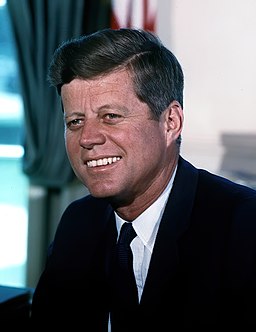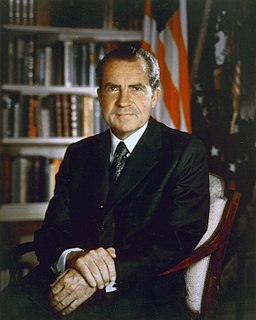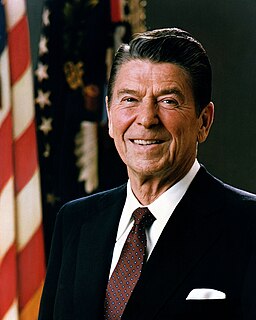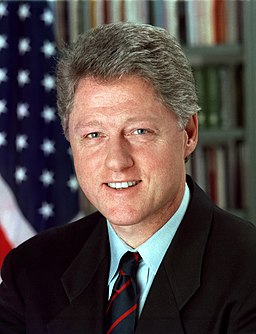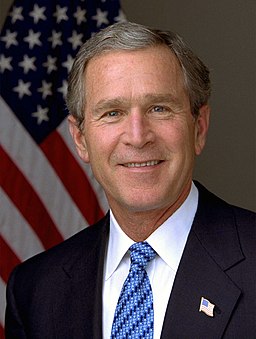1.About #RoyalFamily
The main topic for the October 25th episode of Sekai e Hasshin! SNS Eigojutsu on NHK E-Tele was #RoyalFamily. On October 22nd, the new emperor officially proclaimed his accession to the throne in a traditional ceremony called the Sokuirei Seiden no Gi. The event was attended by foreign royalty, heads of state, and other dignitaries from around the world. On the show, we started off by looking at how members of various royal families were posting to social media about their visit.
Last night, The Prince of Wales attended the Court Banquet at the Imperial Palace in Tokyo.
— Clarence House (@ClarenceHouse) October 23, 2019
The banquet marked Emperor Naruhito’s first official engagement following the enthronement. HRH met the Emperor and Empress on arrival.#RoyalVisitJapan https://t.co/xDkL9QNF87
We also looked at how royalty around the world has been using social media to promote their respective cultures. First up was Sheikh Hamdan bin Mohammed bin Rashid Al Maktoum, the Crown Prince of Dubai, United Arab Emirates. The Crown Prince regularly posts pictures that showcase his many hobbies, including horseback riding, falconry, poetry, sports, cameras and video. As of October 2019, he has more than 8.6 million followers on Instagram.
In the second half of the episode, we talked about royal fashion as worn by some of the most glamorous princesses in the world. We talked about Charlene, Princess of Monaco, who graces the cover of fashion magazines and Princess Sirivannavari Nariratana of Thailand, who heads her own fashion brand. Another royal fashion icon is Princess Maria-Olympia of Greece and Denmark, who works as a fashion model and frequently uploads photos from her shoots to her social media.
Many royals are bona fide Instagram influencers, wowing international audiences with photos of their extraordinary daily lives. Others, however, project a more relatable image: Prince Carl Philip, Duke of Värmland, and Princess Sofia, Duchess of Värmland—Swedish royalty—post warm family photos alongside photos of their official activities.
In a world where social media has become unignorable as a public relations tool, royal houses around the world are increasingly using various platforms to promote their activities and close the distance between themselves and their people.
2.American Envy of the British
Speaking of closeness and familiarity, out of the roster of regulars on our show, I’m likely the least familiar with this topic. Having been born and raised in the U.S., I’ve always been acutely aware of the fact that the United States of America—a country with less than 250 years of history—does not have a royal family. Instead, that void is filled with a palpable inferiority complex toward royalty and all things royal.
After all, the United States of America came into being in order to escape the rule of the British Crown. In the second half of the 18th century, the thirteen British colonies on the Atlantic coast of America declared independence from the Kingdom of Great Britain, sparking the American Revolutionary War. The most famous part of the Declaration of Independence is the “all men are created equal" sentence of the preamble, but what follows are 27 colonial grievances against King George III. That indictment begins as follows:
The history of the present King of Great Britain is a history of repeated injuries and usurpations, all having in direct object the establishment of an absolute tyranny over these states.
This sense of rebellion against the British Crown has been a central part of the American identity since the country’s foundation.
Of course, the idea of what America means has been in constant flux ever since; the history of America can be told through the vicissitudes of the American identity. The second half of the 20th century was an especially tumultuous time for the country and people’s confidence in the institutions that supposedly made the nation great.
American idealism began to crumble in the 60s with the assassination of President John F. Kennedy, who was a symbol of hope and change for the better.
In the 70s, the Watergate scandal shook the U.S. political system and the faith of the American people in the presidency.
In the 80s, the Reagan Administration’s involvement in the Iran-Contra Affair would significantly damage America’s international reputation.
In the 90s, the Clinton-Lewinsky scandal led to the impeachment of President Bill Clinton in 1998 by the U.S. House of Representatives.
In 2003, President George Bush ordered an attack on Iraq under the pretense that Iraq had WMDs—weapons of mass destruction. An Iraqi defector would subsequently admit that he had lied about biological weapons programs in order to bring down the Saddam Hussein regime.
Today, President Donald Trump has torn the nation asunder with his rhetoric and his actions. Over the past half century, the American political system and the American idea has been rattled by indignities; with each new administration, Americans have become increasingly disillusioned.
The British monarchy, on the other hand, has long been a symbol of the British national identity. While the Brexit impasse stretches on, shaking public confidence in politics, the British royal family provides a stability that is not available to many other nations. Although the public is split on so many political and social issues, there remains a connective tissue, a cause for collective celebration. Of course, as in any country—and like any cause—vocal detractors of the British monarchy are not hard to find. Nonetheless, the royal family’s enduring relevance is a source of endless fascination for Americans, who, despite their love of dynamism and progressivism, are beginning to recognize the value of stability in an era of utter chaos.
That fascination reached new heights when American actress Meghan Markle wed Prince Harry, Duke of Sussex in 2018. Certainly, certain segments of the British public were less than thrilled at the idea of a divorcee and woman of color becoming a member of the royal family, and British tabloids have been vicious in their coverage. However, for many African-Americans, Markle has been a cause for celebration, and the wedding has sparked an interest in all things royal and in the U.K. in general.
Americans, too, are known for their love of gossip, and there is no shortage of interest when it comes to scandals involving the British royal family. Line up in front of any supermarket register and you’re sure to see a collage of sleazy tabloid headlines about “Meghan" and “Kate".
Good press or bad press, the British royal family has become a part of the conversation throughout America.
3.Kings and Queens of America
Look across American society and the pop culture landscape and you will see that it is littered with royalty.
The most famous king in America is undoubtedly Burger King—whose domain, judging by the number of locations I’ve seen, also includes Japan. The hamburger chain’s slogan is “have it your way”, and I can’t help but think that if only King George III had been that magnanimous, the Thirteen Colonies might have never broken off their ties with the British Empire.
The music industry has its own distinguished royalty: Elvis Presley, rock n’ roll pioneer and best-selling solo artist of all time, was known as the “King of Rock n’ Roll”, or simply “The King”. Michael Jackson was the “King of Pop”, and his iconic stage wardrobe included ornate military jackets that evoked European royalty such as Napoleon.
Then there’s female rap pioneer Queen Latifah, whose debut album All Hail the Queen was a powerful statement on women’s rights and empowerment. Today, the reigning queen of American music is Beyonce, affectionately referred to by her legions of fans as “Queen Bey”.
And we can’t forget Will Smith, who is best known today as an actor, but started his career as a rapper called the Fresh Prince. The use of royal imagery in hip hop is not a reference to the British Crown but rather to African royalty; it is a way African-Americans have reclaimed the culture and identity they had before they were enslaved and forcibly brought to America.
Contrary to the American identity taught in schools and history books, Americans are indoctrinated from childhood to feel admiration for all things royal. The single biggest perpetrator of this identity crisis-in-waiting is Disney. Films like Snow White, Cinderella, The Little Mermaid, and Beauty and the Beast are adapted from European fairy tales, and almost always involve a beautiful but unhappy young woman who is saved by the arrival of her prince charming. Disney heroines are collectively referred to as Disney princesses. This fascination is manifested in a myriad of ways. On Halloween, the streets are overrun with little girls in princess costumes; meanwhile, beauty pageants always end with the winner being crowned with a tiara. Has there ever been a tradition so quintessentially American and quintessentially European at the same time?
And what are high school proms but a modern incarnation of the formal ball—a dance party with roots in medieval Europe? (We’ve talked about prom on the show before.) In the evening’s most important event, the two most popular students in school are chosen by vote and crowned the prom king and queen. We’ve all come across guys who hold on to that high school glory well into adulthood, who wear that prom king title as a badge of honor throughout the rest of their lives.
4.A Complicated Relationship With the Emperor
As I’ve shown so far, America has had a historically contentious relationship with royalty that has gradually come to be characterized by low-key admiration seeded by a sense of inferiority. Meanwhile, it’s relationship with the Japanese imperial family, has in some ways been even more complicated and fraught.
After Japan’s defeat in World War II, the big question became whether or not Emperor Hirohito would be tried for war crimes. The majority of Americans at the time believed the answer was yes. However, in a face-to-face meeting with General MacArthur, Emperor Hirohito accepted full responsibility for his country’s actions and his intention to face the consequences. MacArthur recounts in his memoir how he was moved by the gesture and impressed by the emperor’s character:
This courageous assumption of a responsibility implicit with death, a responsibility clearly belied by facts of which I was fully aware, moved me to the very marrow of my bones. He was an emperor by inherent birth, but in that instant I knew I faced the First Gentleman of Japan in his own right.
— Reminiscences by Douglas MacArthur
Emperor Hirohito would later issue a proclamation denying his own divinity, and MacArthur would commend the emperor’s actions. MacArthur knew that the emperor would be “a unifying factor" in helping keep the peace in occupied Japan. While the emperor remained as “the symbol of the State and of the unity of the people", reforms would dissolve the zaibatsu — the industrial and financial business conglomerates in the Empire of Japan—and the Old Imperial Family. This would have a profound effect on the future of Japan, culminating in the current debate on the future of Imperial succession. Perhaps the awe that MacArthur experienced in Emperor Hirohito’s presence made it clear to him that it was in their long term interest to steer the Imperial Family in such a way that it would eventually cease to exist.
When it came to American public opinion, however, MacArthur’s respect and awe for Emperor Hirohito was lost in translation. That underlying sense of discomfort with the Japanese Imperial Family can be seen in the question of whether or not American presidents should bow to the emperor.
In 1989, President George H. W. Bush bowed before the casket of Emperor Hirohito at a state funeral in a profound display of respect. In 1994, when President Clinton greeted Emperor Akihito—Hirohito’s son—with a slight bow at the White House ahead of a state dinner for Japan, he was criticized for the gesture. The White House chief of protocol had to explain to the media that “It was not a bow-bow, if you know what I mean."
In 2009, when President Barack Obama came to Japan on his first official visit, he bowed deeply to Emperor Akihito, and was roundly criticized for lowering the stature of his office and displaying weakness. Others were critical of the fact that he had shaken the emperor’s hand and bowed at the same time. A handshake, of course, is a Western greeting that is done standing upright; a 45-degree bow is the most respectful type of bow, and given only in important situations that call for the utmost sincerity. Despite President Obama’s best intentions, the mixture of gestures came across as a lack of familiarity with etiquette more than anything else.
In November 2017, President Donald Trump made headlines when he did not bow to Emperor Akihito, and opted to go with a handshake and slight nod instead. (President Trump also did not bow when he greeted Queen Elizabeth II on an official visit to the U.K.)
While bowing is a gesture of respect in Japan, in America it is seen as a gesture of subservience. It’s no surprise, then, that the thought of lowering one’s head in any capacity to a dignitary of a nation you defeated in war—most of all, the emperor himself—would be unbearably humiliating. What’s more, from a hierarchical perspective, it’s only natural that “His Excellency the President of the United States of America"(大統領閣下) would feel awe in the presence of “His Majesty the Emperor of Japan"(天皇陛下).
(About 閣下 and 陛下. Heika (陛下) is an honorific similar to “Majesty" in English that is used to address the emperor, the empress, and any previous empresses of Japan. Kakka (閣下) is an honorific similar to “Excellency" in English that is used to address heads of state, heads of government, cabinet ministers, ambassadors, and other high-ranking officials. Side note, Denka is similar to “Your Highness" in English and is used to address princes and princesses. )
Last week, members of royal families from around the world flew in to Japan for the enthronement ceremony of Emperor Naruhito. It is worth noting that the U.S. representative for the ceremony was Secretary of Transportation Elaine Chao. The idea of being relegated to an inferior position in a room full of international royalty likely did not sit well with President Trump, who faces a tough reelection race next year. Trump supporters and the American public in general surely would have found the optics less than favorable.
For all these political, cultural, and historical reasons, Americans feel very little familiarity, as well as great ambivalence, toward the Japanese Imperial Family. If you ask me, for Americans obsessed with pop culture “kings" and “queens", the emperor that is most familiar to them is likely the emperor of the Galactic Empire and master to Darth Vader, Darth Sidious.


